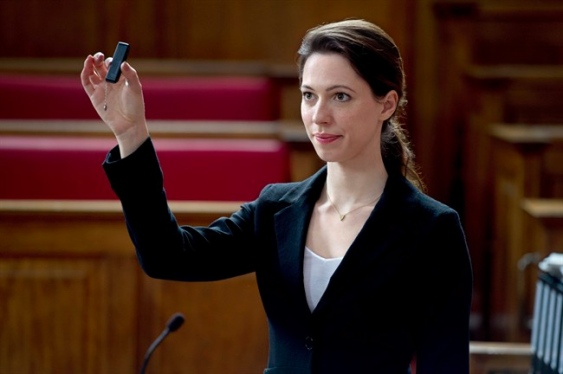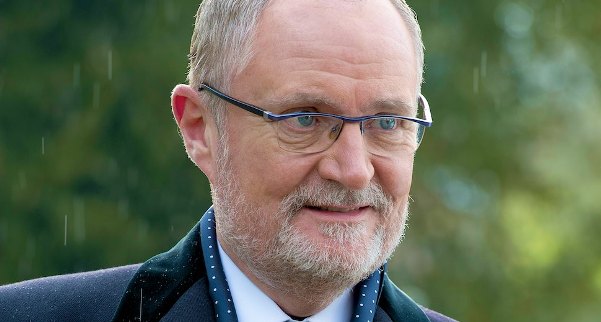Orgasms aside, it was When Harry Met Sally’s edict that sex always gets in the way of male-female friendships that hit home. Drinking Buddies comes to more nuanced conclusions, as we watch Kate (Olivia Wilde) and Luke (Jake Johnson) steadily drink and comfortably banter during and after work at a Chicago micro-brewery, and wonder just when they’re going to leave their straitlaced partners, Chris (Ron Livingston) and Jill (Anna Kendrick), pictured below.

Cornelia is 60 and increasingly frustrated with her 34-year-old son, Barbu. He doesn’t communicate with her, she doesn’t approve of his girlfriend and the way he leads his life. Convinced she has to take command of her immature son, she’s suddenly presented with an opportunity to exert control. The release of the Romanian film Child’s Pose in the same week as Gloria – the Chilean story of a 58-year-old woman making the most of life – is uncanny, as each offers a wildly different take on similar raw materials.

A film of contrasts, Short Term 12 manages to be simultaneously dark and humorous, casual yet intense. The relationships between staff and patients in the group home for troubled teenagers where it’s set – the facility is meant to be a place of refuge for up to a year, hence the title, though many stay longer – are both thick and thin, and as in the wedding vow must endure through difficult times.

Gloria is 58. Divorced 12 years earlier, she’s intent on living life. Her two children are grown up, she works in a characterless office and is open to almost anything. She’ll try cannabis, attends a class where instruction is given on releasing laughter and tackles yoga for the first time. Beyond keeping in touch with her son and daughter, her greatest efforts are directed towards her nightlife. On her own, Gloria goes to ballrooms, bars and nightclubs where she hopes to make a connection. Then, one evening, she encounters Rodolfo. His opening line is “are you always this happy?”

Former video artist Clio Barnard's second feature - which took Cannes 2013 by storm with its stark and striking humanity - takes inspiration and its title from the Oscar Wilde fairytale. However that's not the film's only, or most significant, influence: The Selfish Giant is, by its director's own admission, a response to the continuing, corrosive impact of Thatcherism, an ideology that put selfishness ahead of societal needs and pushed millions to the margins.

We have plenty to be paranoid about in the most surveilled country in the world. British contributions to the conspiracy thrillers that bloomed so fruitfully in the US around Watergate have, though, stayed slim. Maybe that’s one reason Closed Circuit’s extreme Secret Service behaviour in the aftermath of a bomb atrocity at London’s Borough market feels so fake.
CIA agents snuffing out inconvenient people on city streets is cinematic second nature. MI5 hunting Eric Bana and Rebecca Hall’s high-powered barristers through Dalston back-alleys takes more swallowing. So does some of the dialogue in Steve Knight’s bumpy script, despite having Jim Broadbent, Anne-Marie Duff, Ciaran Hinds and Julia Stiles to help speak it.
 Bana and Hall (pictured right) are excellent as ex-lovers Martin Rose, the defence for surviving bomb plotter Farroukh Erdogan (Denis Moschitto), and Claudia Simmons-Howe, the Special Advocate defending him in closed court. The potential for abuse and fundamental unjustness of the latter process when dealing with alleged terrorists is one of the film’s most fascinating themes, if it only had the courage to stick with it. Aussie Bana particularly enjoys Rose’s blowhard articulacy, barely hiding bitter vulnerability after a work-wrecked marriage, and theatre aristocrat Hall (Sir Peter’s daughter) matches his comfort at posh, powerful sparring. Riz Ahmed’s nervy, dangerously idealistic MI5 man, Ann-Marie Duff as his venomous boss and Jim Broadbent’s oily Attorney General (pictured below), with so many Tory and New Labour apparatchiks to inspire him as he bullies and lies with a beaming smile, are also fine. But though writer Knight’s work include London thrillers Eastern Promises and Dirty Pretty Things and Brum gangland saga Peaky Blinders, there are leaden lines the cast deserve danger money for lifting.
Bana and Hall (pictured right) are excellent as ex-lovers Martin Rose, the defence for surviving bomb plotter Farroukh Erdogan (Denis Moschitto), and Claudia Simmons-Howe, the Special Advocate defending him in closed court. The potential for abuse and fundamental unjustness of the latter process when dealing with alleged terrorists is one of the film’s most fascinating themes, if it only had the courage to stick with it. Aussie Bana particularly enjoys Rose’s blowhard articulacy, barely hiding bitter vulnerability after a work-wrecked marriage, and theatre aristocrat Hall (Sir Peter’s daughter) matches his comfort at posh, powerful sparring. Riz Ahmed’s nervy, dangerously idealistic MI5 man, Ann-Marie Duff as his venomous boss and Jim Broadbent’s oily Attorney General (pictured below), with so many Tory and New Labour apparatchiks to inspire him as he bullies and lies with a beaming smile, are also fine. But though writer Knight’s work include London thrillers Eastern Promises and Dirty Pretty Things and Brum gangland saga Peaky Blinders, there are leaden lines the cast deserve danger money for lifting.
 Closed Circuit’s head-thumping improbability as a thriller also stands in stark contrast to its great efforts at legal realism. MI5’s reasons for a post-bombing cover-up which develops into an attempted mid-trial massacre of anyone who knows what they’ve been up to are convincingly extreme, and the idea of British agents being so ruthless on British streets is usefully challenging. James Bond’s sprint down Whitehall to protect the liberty of the British state in Skyfall is turned inside-out. But when the intended victims are Julia Stiles’ top New York Times reporter, and Bana and Hall’s elite lawyers on what is repeatedly called the Trial of the Century, Stalin’s KGB seem better candidates for the job. As blundering hitmen attack our heroes the night before the trial, a phone-call to any newspaper would make their deaths instantly unthinkable. D-notices be damned. They’d have to blow up the printing presses (and the internet) to stop that coming out.
Closed Circuit’s head-thumping improbability as a thriller also stands in stark contrast to its great efforts at legal realism. MI5’s reasons for a post-bombing cover-up which develops into an attempted mid-trial massacre of anyone who knows what they’ve been up to are convincingly extreme, and the idea of British agents being so ruthless on British streets is usefully challenging. James Bond’s sprint down Whitehall to protect the liberty of the British state in Skyfall is turned inside-out. But when the intended victims are Julia Stiles’ top New York Times reporter, and Bana and Hall’s elite lawyers on what is repeatedly called the Trial of the Century, Stalin’s KGB seem better candidates for the job. As blundering hitmen attack our heroes the night before the trial, a phone-call to any newspaper would make their deaths instantly unthinkable. D-notices be damned. They’d have to blow up the printing presses (and the internet) to stop that coming out.
Director John Crowley’s previous film Is Anybody There? combined bleak, comic and sentimental moods as Michael Caine declined in an old people’s home. Closed Circuit feels compromised and half-cooked. Walking out of one of Closed Circuit’s inspirations, the fine British conspiracy thriller Defence of the Realm, in 1986, newsstand headlines of the nearly government-toppling Westland affair greeted me, and film and murky reality seemed to merge. No chance of that here.
Overleaf: watch the trailer for Closed Circuit

With a hero who’s an aspiring actor and an ensemble of theatrical types trapped outside time as supporting cast, the staginess of Ferzan Ozpetek’s A Magnificent Haunting comes as little surprise. It makes for sometimes nicely camp overplaying, though the comedy that made the Turkish-born director’s latest film a hit in his adopted Italy doesn’t travel easily beyond borders. Some elements, including gay traces, transvestite cameos and females at nervous breakdown levels, hint at eccentric sensibilities akin to those of Pedro Almodóvar.

“We grew up like animals,” says FAME Studios’ founder Rick Hall of his upbringing. “That made me better… I wanted to be somebody.” He did become somebody, and in the process put Alabama’s Muscle Shoals on the map. This film tells the story of how a small city birthed some of the greatest American music of the 20th century, and of the ripples which subsequently spread. The Rolling Stones recorded there in 1969. Five years earlier they had released their version of Arthur Alexander’s “You Better Move On”. Hall was behind the original, his first production.

It's dueling stars when Tom Hanks and Emma Thompson go quite delightfully toe-to-toe as Walt Disney vs P L Travers, author of Mary Poppins, in Saving Mr Banks, the closing film of the London Film Festival 2013. The title suggests the Russian doll-like nature of the story – a story within a story wrapped in an enigma, with seriously fabulous hair and make-up turning both Hanks and Thompson into characters you can almost completely believe in.

Common sense indicates it’s a rare film which retains the impact it had on first exposure. Films can often reveal new depths and fresh detail with repeated viewing, but that initial effect is tough to duplicate. This new release of FW Murnau’s Nosferatu, eine Symphonie des Grauens actually captures the thrill of the first-time experience. Partly, that’s due to the extraordinary restoration. It’s also because experiencing the film in the cinema is utterly unlike seeing it at home.

